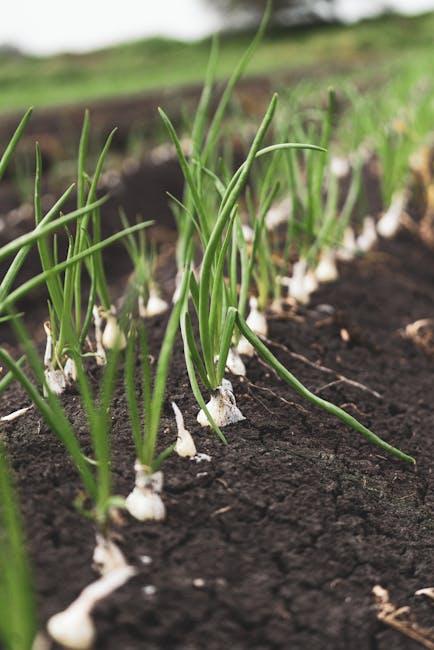Welcoming a new puppy into your home is an exciting and joyful experience, filled with wagging tails and playful antics. However, along with the cuddles and games comes the important responsibility of ensuring your furry friend receives the right nutrition to support their growth and development. Puppy meal planning is a crucial aspect of pet ownership that every new dog parent should be well-versed in. In this guide, we’ll walk you through the essentials of crafting a balanced diet for your puppy, offering tips and insights to help you navigate the sometimes overwhelming world of pet nutrition. With a warm heart and a thoughtful approach, you’ll be well on your way to nurturing a healthy and happy companion for years to come.
Understanding Nutritional Needs for Your Growing Puppy
Feeding your puppy is not just about filling their bowl; it’s about understanding their unique dietary requirements to support healthy growth and development. Puppies need a balanced diet rich in nutrients that cater to their rapid growth and energetic lifestyle. Here are some key nutritional components to consider:
- Protein: Essential for building muscles and tissues, protein should be the cornerstone of your puppy’s diet. Look for high-quality sources like chicken, beef, or fish.
- Fats: Healthy fats are crucial for energy and brain development. Ingredients such as omega-3 and omega-6 fatty acids from fish oil or flaxseed are beneficial.
- Carbohydrates: Provide your puppy with energy through digestible carbs like rice and sweet potatoes. Avoid fillers that offer little nutritional value.
- Vitamins and Minerals: Ensure your puppy gets a balanced intake of essential vitamins and minerals for bone growth and immune function. A good puppy food should contain calcium, phosphorus, and vitamin D.
Beyond the ingredients, consider the feeding schedule and portion sizes. Puppies have small stomachs and high energy needs, so it’s best to feed them smaller, more frequent meals throughout the day. Typically, a puppy should eat three to four meals daily until they are about six months old, then transition to two meals a day. Adjust portions based on their growth, activity level, and veterinary guidance to prevent overfeeding or underfeeding.
Crafting a Balanced Meal Plan Tailored to Your Puppy
Creating a meal plan for your puppy isn’t just about filling their bowl; it’s about ensuring their growth, energy, and health are supported by a balanced diet. A balanced meal plan includes the right proportions of proteins, fats, carbohydrates, vitamins, and minerals. Each of these components plays a critical role in your puppy’s development:
- Proteins: Essential for muscle growth and tissue repair, proteins should be the cornerstone of your puppy’s diet. Look for high-quality sources such as chicken, beef, or fish.
- Fats: These provide concentrated energy and support brain development. Healthy fats can be found in ingredients like fish oil and chicken fat.
- Carbohydrates: Necessary for energy, they should come from digestible sources like rice, sweet potatoes, or oats.
- Vitamins and Minerals: Critical for immune function and bone health, ensure these are included either through a balanced commercial puppy food or supplements recommended by your vet.
Adjust portion sizes based on your puppy’s breed, age, and activity level. Puppies generally require more frequent meals than adult dogs—typically three to four times a day. Monitor their growth and adjust the meal plan as needed to avoid under or overfeeding. Always have fresh water available, and remember that every puppy is unique; what works for one might not work for another, so it’s important to be attentive to their specific needs.

Tips for Transitioning to New Foods and Preventing Picky Eating
Introducing your puppy to a variety of foods can be a delightful journey for both of you. To ease this transition and prevent picky eating, consider these simple yet effective tips:
- Gradual Introduction: Start by mixing a small amount of the new food with your puppy’s current diet. Gradually increase the proportion of the new food over several days to help your puppy adjust without digestive upset.
- Consistency is Key: Puppies thrive on routine. Serve meals at the same time each day and in the same location to provide a sense of stability and security.
- Positive Reinforcement: Encourage your puppy to try new foods by using praise and affection. Reward them with a small treat or extra playtime when they eat their meals willingly.
- Variety and Texture: Offer a range of textures and flavors to keep meals exciting. Introduce a mix of wet and dry foods, and consider adding small amounts of cooked vegetables or lean meats for added interest.
- Avoid Table Scraps: While it may be tempting to share your meal, table scraps can lead to unhealthy eating habits and nutritional imbalances. Stick to foods specifically formulated for puppies.
Remember, patience and persistence are essential. Each puppy is unique, and some may take longer to adapt to new foods than others. By creating a positive and structured feeding environment, you can nurture a healthy appetite and prevent the development of picky eating habits.
















